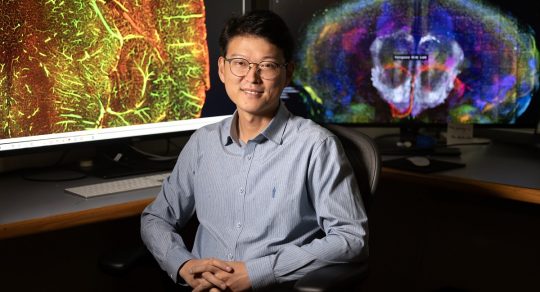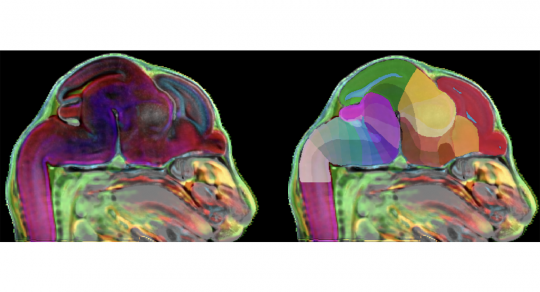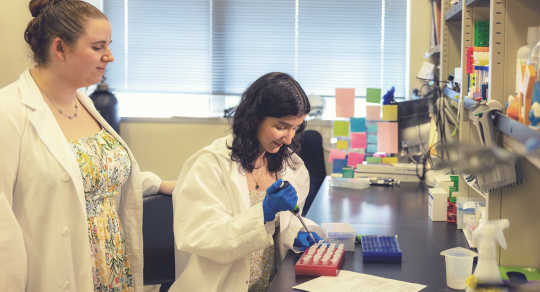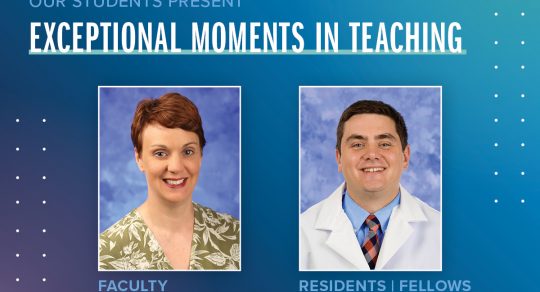Departments
Neuroscience and Experimental Therapeutics
The mission of the Department of Neuroscience and Experimental Therapeutics is to generate new knowledge to understand the nervous system in health and disease, to develop novel treatments, and to provide high-quality training and education for the next generation of scientists and physicians.

From the Chair
“Our former trainees are employed as physicians, professors, entrepreneurs, research scientists and administrators throughout the world, while our faculty serve as educational leaders within Penn State and across the nation.”
Patricia "Sue" Grigson, PhD
Chair
Who We Are and What We Do
Contact Us
To reach someone in the Department of Neuroscience and Experimental Therapeutics, send us an email.

Timing and regularity of sleep may be key for adolescent heart health
Read about how faculty member Julio Fernandez-Mendoza, PhD, is studying how sleeping patterns affect adolescent heart health. The study is funded in part by the National Institutes of Health.

“Penn State provides a highly supportive and collaborative environment for neuroscience research. The College of Medicine offers the infrastructure, resources, and collegial atmosphere needed to drive breakthroughs in our field.”
Yongsoo Kim, PhD
Associate Professor, Department of Neuroscience and Experimental Therapeutics; Penn State Neuroscience Institute

Toxic protein may contribute to ALS development
Researcher Nikolay Dokholyan, PhD, MS, is challenging the traditional notion of ALS and muscle atrophy, which could lead to identifying additional therapies. This research is made possible through a grant from the National Institutes of Health.
Science in 60 Seconds
Hear from Dr. Dokholyan about how he uses artificial intelligence to help with research on neurodegenerative diseases.

Can weight loss drugs help in addiction treatment?
Faculty members at the College of Medicine are the first in the country to study whether weight loss drugs could treat addiction.
Science in 60 Seconds
Researchers at Penn State College of Medicine are finding that GLP-1 receptor agonists, approved for use in diabetes and for weight loss, may also help with addiction.



